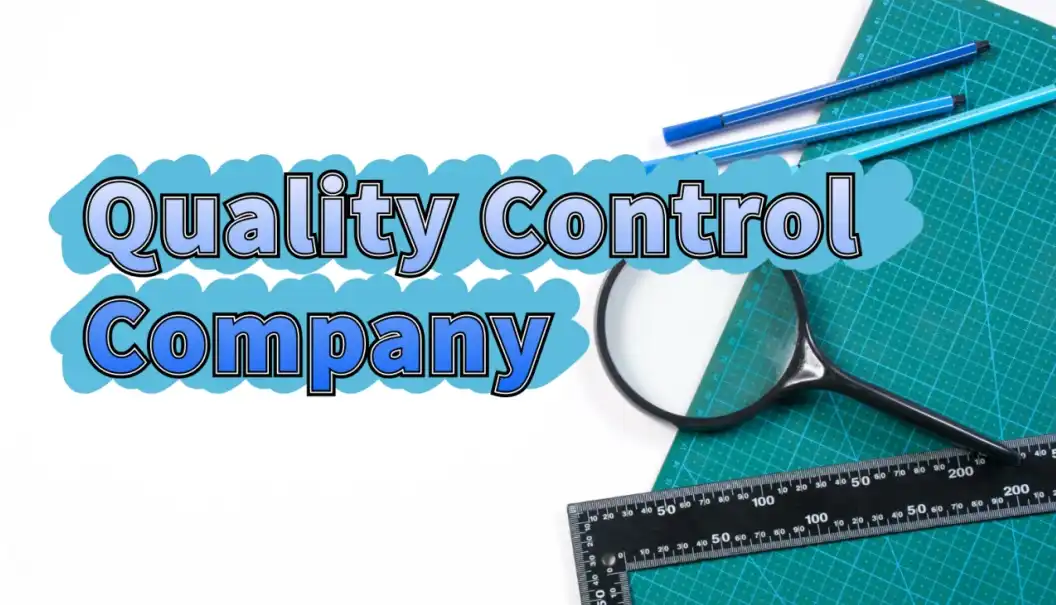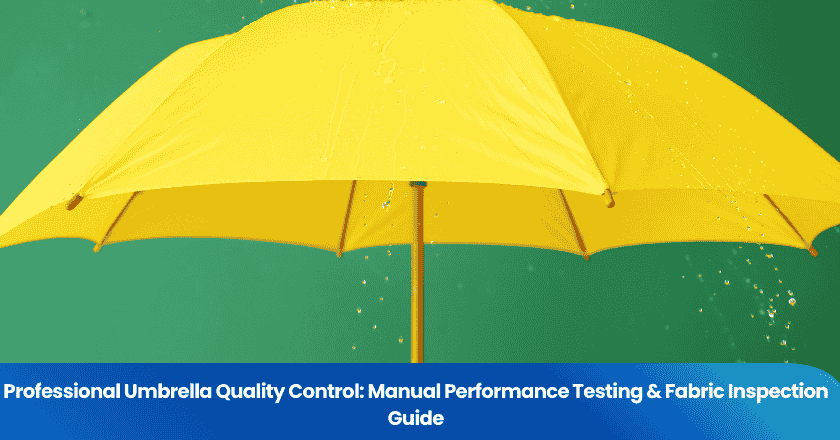
Introduction
In today's fiercely competitive market environment, quality is not only a fundamental attribute of products or services, but also the cornerstone for the survival and development of enterprises. An effective quality control system can ensure product consistency and reliability, enhance customer satisfaction, strengthen brand credibility, and ultimately drive the enterprise towards sustainable development.
This guide aims to provide a comprehensive framework for enterprises to seek and establish partnerships with the best quality control companies, thereby ensuring that every aspect of business operations meets the highest standards.
Understand quality control and its importance
Precise Definition of Quality Control
Quality Control (QC), as a core aspect of modern enterprise management, refers to a series of systematic activities that run throughout the entire production or service process. These activities include, but are not limited to, comprehensive inspection of raw materials, strict monitoring during the production process, meticulous testing of finished products, and reconfirmation before final delivery, aiming to ensure that products or services at every stage precisely meet established quality standards and customer expectations. Quality control is not only a technical inspection process but also an important manifestation of enterprise management philosophy. It requires rigorous treatment at every step, from the source to the end, without any negligence. This comprehensive and full-process management strategy constitutes an indispensable key component of the quality management system, laying a solid foundation for the stable operation and sustainable development of enterprises.
Significant benefits brought to enterprises by effective quality control
Significantly reduce defects and waste: By implementing strict quality control measures, enterprises can identify and rectify potential quality issues at the early stage of production, thereby effectively reducing the defect rate and rework rate, and subsequently significantly lowering production costs and resource waste. This proactive management approach not only enhances resource utilization efficiency but also creates more profit margins for enterprises.
Significantly enhance customer satisfaction: Providing high-quality products consistently and stably is the key to gaining customer trust and loyalty. Quality control ensures that every product meets or even exceeds customer expectations, thereby enhancing customer satisfaction and loyalty, establishing a good brand image and reputation for the company, and laying a solid customer foundation for future market expansion and business development.
Ensuring compliance with regulatory requirements: In an increasingly complex business environment, adhering to industry standards, laws, and regulations is a prerequisite for the survival and development of enterprises. A quality control system assists enterprises in ensuring that their products fully comply with relevant standards and regulatory requirements, effectively mitigating legal risks and protecting the legitimate rights and interests of the enterprise.
Promoting continuous improvement and innovation: Quality control not only focuses on the current product quality, but also reveals potential quality issues and improvement areas for enterprises by collecting and analyzing quality data. This data-based decision support can guide enterprises to continuously optimize production processes, improve product quality, and even promote the innovative upgrading of products and services, providing a strong driving force for enterprises to maintain a leading position in fierce market competition.
A wide range of industries commonly adopt quality control services
Quality control services are widely applied across multiple industries due to their significant role in enhancing product quality and enterprise management levels. In the manufacturing sector, whether it's the processing of precision mechanical parts or large-scale assembly line production, quality control is crucial for ensuring product performance and quality. The food processing industry ensures the safety, hygiene, and nutritional value of food through rigorous quality control. The pharmaceutical industry views quality control as a lifeline, ensuring the effectiveness and safety of drugs. The automotive manufacturing and electronics industries enhance product reliability and durability through quality control. In the field of construction engineering, quality control is crucial for ensuring the safety and service life of buildings, which is of great significance for safeguarding people's lives and property. The widespread application of these industries fully demonstrates the indispensability and importance of quality control in modern enterprise management.
Clarify quality control requirements
Conduct an in-depth assessment of the specific quality challenges faced by enterprises
Before establishing an efficient quality control system, the primary task for enterprises is to conduct a comprehensive and in-depth self-examination to accurately identify those crucial quality control points in the production or service process. This includes not only strictly controlling the inspection of raw materials to ensure that each batch of materials entering the production line meets established standards, but also involves meticulous monitoring of production process control, searching for possible quality fluctuation points in every step of the production line, and comprehensive testing during the finished product testing stage to ensure that the final delivered products meet or even exceed customer expectations. In addition, enterprises need to be keenly aware of the hidden quality challenges in daily operations, such as process instability in the production process, non-standard employee operations, and accuracy degradation caused by equipment aging. These are all key factors affecting product quality and must be highly regarded and effective solutions must be sought.
Precisely determine the comprehensive scope of quality control required
After identifying specific quality challenges, enterprises need to precisely define the specific scope of quality control based on their actual situation. This scope should cover, but not be limited to, the following aspects: product inspection, which involves conducting rigorous quality inspections on all outgoing products to ensure that each one meets quality standards; process auditing, which involves regularly conducting comprehensive reviews of production or service processes to promptly identify and correct deviations in the process; supplier management, which involves strengthening quality control over suppliers to ensure the stability and reliability of the supply chain; and environmental monitoring, which is particularly important in industries with special requirements for the production environment, such as food and pharmaceuticals, where continuous monitoring and control of the production environment are necessary to ensure that products are not contaminated by external factors. By clarifying these quality control scopes, enterprises can build a comprehensive and multi-level quality control network, providing strong support for the continuous improvement of product quality.
Establish clear and measurable quality standards and objectives
To ensure the effectiveness and relevance of quality control efforts, enterprises must establish a series of clear, quantifiable, and traceable quality indicators. These indicators should closely align with industry standards and customer needs, encompassing but not limited to strict control of defect rates to ensure that the product defect rate remains at an extremely low level; rapid response time, whether dealing with customer feedback or internal quality issues, ensuring swift and efficient resolution; and continuous improvement in customer satisfaction, through regular customer satisfaction surveys to understand customers' genuine feelings about the products and adjust quality control strategies accordingly. These specific and quantified quality goals and indicators not only provide clear guidance for quality control efforts but also serve as an important basis for evaluating the effectiveness of quality control, driving enterprises to continuously move towards higher quality goals.
Several key factors carefully selected
Profound experience and professional knowledge: laying the foundation for cooperation
Profound accumulation of industry experience: When selecting a quality control company, prioritize those with years of industry experience. These companies, having weathered the test of time, have not only amassed a wealth of practical cases but also honed their exceptional adaptability in problem-solving. They can swiftly pinpoint the root causes of quality issues and offer effective solutions, providing solid support for the company's quality control efforts.
Comprehensive service coverage: It is crucial to ensure that the service scope of the selected company can fully cover your quality control needs. Whether it is raw material inspection, production process control, finished product testing, supply chain management, or other aspects, it should all be within its service scope. In this way, enterprises do not need to worry about quality control blind spots caused by service deficiencies, thereby ensuring comprehensive control of product quality.
Dedicated efforts in specialized fields: Every industry has its unique quality standards and challenges. Therefore, it is particularly important to choose quality control companies that possess profound expertise in your field. These companies can integrate industry characteristics to provide more precise and effective quality control solutions, helping enterprises stand out in the fierce market competition.
Authoritative certification and compliance: ensuring worry-free cooperation
Authoritative endorsement of ISO certification: ISO 9001 and other quality management system certifications are internationally recognized quality management standards. Companies that have obtained these certifications usually possess high-level quality management capabilities. Choosing such a quality control company can ensure that the company's quality control work meets international standards and enhance the market competitiveness of its products.
Meet the stringent requirements of industry-specific standards: Different industries have their unique requirements and norms for quality control. When selecting a quality control company, it is crucial to confirm whether it is familiar with and adheres to the specific standards and regulations of your industry. This ensures that the selected quality control company partner can provide compliant and effective quality control services for the enterprise, avoiding potential risks arising from non-compliance.
Advanced technologies and tools: enhancing the efficiency of quality control
Accurate guarantee provided by advanced testing equipment: Quality control is inseparable from precise testing equipment. Choosing companies equipped with advanced testing equipment ensures the accuracy and reliability of testing results, providing strong support for the quality control work of enterprises.
Intelligent Upgrade of Digital Reporting and Data Analysis: In today's era where big data and artificial intelligence technologies are becoming increasingly mature, quality control should also keep pace with the times. Choosing a company with digital reporting and data analysis capabilities enables the utilization of these advanced technologies to conduct in-depth mining and analysis of quality data, thereby identifying potential quality issues and promoting the intelligent upgrade of quality control.
Good reputation and customer feedback: witnessing strength and credibility
A visual representation of successful cases and customer evaluations: By gaining insights into the successful cases and customer evaluations of a quality control company, one can intuitively assess its service quality and professional expertise. These genuine feedbacks serve as crucial references for evaluating the company's strength, aiding businesses in making more informed choices.
Comprehensive consideration of online reviews and ratings: In the information age, online reviews and ratings have become an important way to understand a company's reputation. By consulting comprehensive evaluations on third-party platforms, one can obtain more comprehensive and objective information, providing a powerful reference for corporate choices. Choosing companies that have received high praise in online reviews can usually bring a more satisfactory quality control service experience to the enterprise.
Grow your business with TradeAider Service
Click the button below to directly enter the TradeAider Service System. The simple steps from booking and payment to receiving reports are easy to operate.





